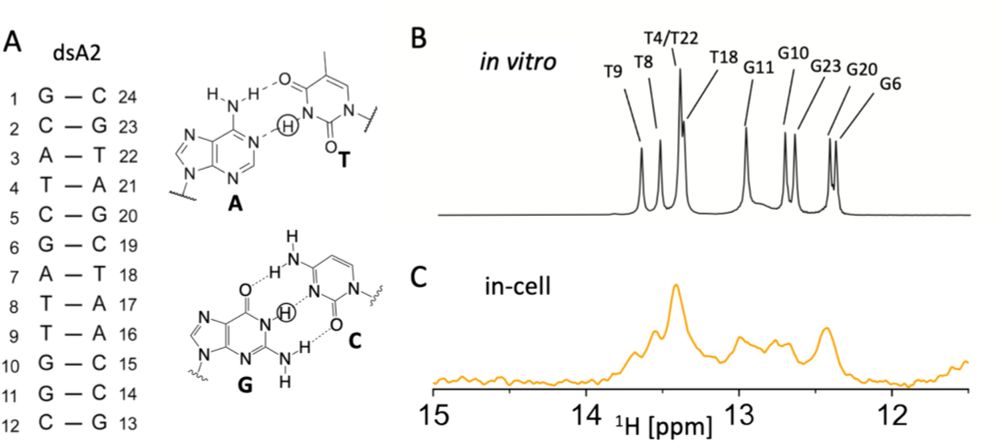have you ever worried about your DNP MAS
#solid-stateNMR experiments on
#nucleicacids being too sensitive? well my colleagues have, so they used site-directed spin labelling to link a DNP-active biradical to RNA, which allows enhancement of the RNA but not pesky background signals!
🔗:
bit.ly/4nmAl2K
Site-Directed Spin Labeling with the Bis-Nitroxide AsymPol Enables Targeted DNP MAS NMR of RNA
Dynamic nuclear polarization (DNP) enhances NMR sensitivity by transferring electron spin polarization to nuclei, providing structural and biophysical insights into complex biomolecules at low concentrations. However, conventional DNP often lacks selectivity, amplifying background signals, e.g. in complex environments such as cells. Here, we introduce the bis-nitroxide AsymPol-NCS-SDSL as the first polarizing agent for site-directed spin labeling of RNA to achieve targeted DNP signal enhancement. This AsymPol derivative was conjugated to several sites in sirtuin1 mRNA (mSirt1), which is targeted by microRNA 34a (miR-34a), both regulators of the cancer gatekeeper protein p53. At 9.4 T, enhancements of up to 27-fold were obtained when AsymPol-labeled mSirt1 was paired with 13C,15N-cytidine-labeled miR-34a. Control over polarization localization was achieved by adjusting the deuteration level of the matrix. The resulting long polarization build-up times (TB,on), due to both deuteration and the low biradical concentration, were reduced by doping the sample with the paramagnetic metal ions CuII and GdIII, while maintaining the sensitivity. Together, these results establish a versatile strategy for nitroxide biradical-based targeted DNP in nucleic acids, paving the way for high-sensitivity RNA studies at concentrations ≤ 40 µM, even in cellular environments.






